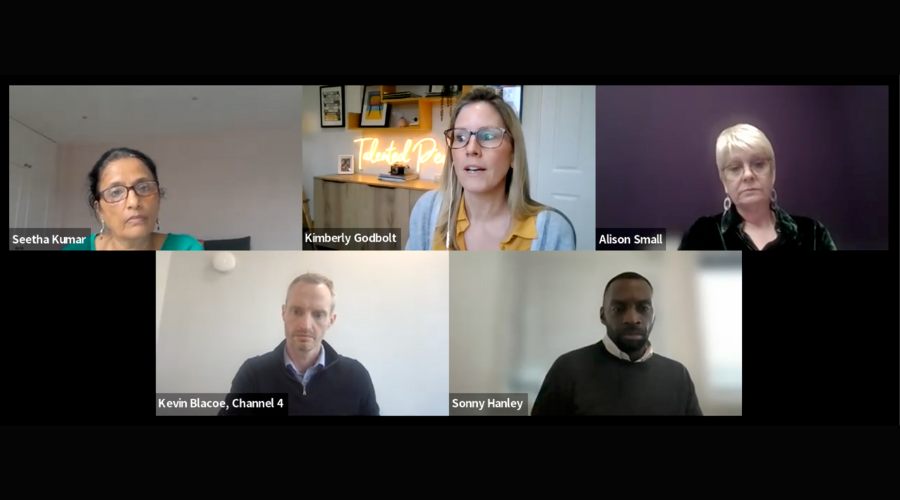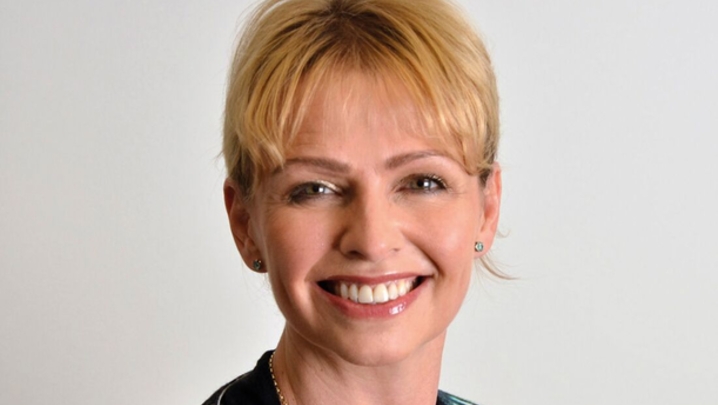An RTS panel considers how the TV sector can do more to recruit and retain the workers it needs.
‘Here’s a statistic that’s pretty mind-blowing: in recent years, the [creative] industries have delivered more economic value than life sciences, aerospace and the automotive sectors combined. And yet skills, and the people who have the right ones, are currently the biggest single inhibitor of growth.” So said Kimberly Godbolt, founder of TV recruitment company Talented People, in her introduction to an RTS panel discussion on the skills shortage.
Creative-industry jobs are growing at three times the UK average – a trend to be proud of in these tough economic times. But finding the right people to meet that demand – as well as retaining them – is a challenge.
“We are actually physically lacking the people to do the jobs,” said Godbolt. “There’s too much work and too few people. People are getting promoted quickly and we don’t have that pipeline underneath.”
Seetha Kumar, Chief Executive of ScreenSkills, which centralises training and recruitment resources across the screen industries, explained that “we’re still in rapid catch-up mode”. She added: “It’s not something that you can just put in an oven and bake like a cookie.”
Joining Godbolt and Kumar on the panel were Alison Small, manager of Netflix’s Grow Creative, Sonny Hanley, director of the recently launched ITV Academy, and Kevin Blacoe, head of partnerships at Channel 4’s 4Skills.
Each of these initiatives is designed to encourage the recruitment, training and retention of British TV’s creative and technical talents.
While all the panellists champion partnerships, diversity and inclusion, and promote data-driven decisions, each aims to alleviate the skills shortage in complementary ways, rather than by competing with one another.
For example, Grow Creative focuses on training freelance talent in the sought-after fields of production management, production accounting, visual effects, post-production and music supervision.
4Skills, meanwhile, focuses on apprenticeships and training schemes at Channel 4 and the indies it commissions. The ITV Academy is geared towards training mid-level workers while also having one eye on entry-level recruits.
When it comes to attracting new talent, a question from the audience teased out a major issue: poor pay – reports of just £130 a day were cited – is a key factor in the skills shortage.
Said Small: “We always pay at least the London Living Wage to trainees, which is more than the minimum wage. And they’re only trainees for a certain [amount of time] – they do move up.
“We can help with additional [outlays beyond] just their wages – whether that is about transport or accommodation on location. Some trainees say they need a laptop. We’re open to the things that we can support. But I agree, London rents are just horrendous. We have not cracked that problem yet.”
Short-term contracts make things worse: they make financial planning – vital for those on low incomes, especially during the cost-of-living crisis – near-impossible. But the panellists agreed that it was the nature of the beast and unlikely to change in a project-based sector.
Advice on how best to manage freelance life can help. Said Blacoe: “It’s about giving people the skills, the knowledge and the ability to plot their way through things.”
To encourage industry newcomers, recruiters are using a variety of initiatives, starting in schools. Careers advisors are being trained to understand the breadth of jobs available. ScreenSkills provides a resource pack for high-end TV industry professionals to return to their school to spread the word.
Godbolt recalled: “I went to my son’s school and tried to convince a bunch of Year 5s that they should all be production managers.”
There seems to be no shortage of training opportunities. The idea is to equip people to work across broadcasters, streaming services and production companies. ITV Academy has seven initiatives up and running. These include a news traineeship and a continuing drama initiative for those who want to work on shows such as Emmerdale and Coronation Street.
Blacoe said that 4Skills invested £5m last year to support around 23,000 people. Netflix is bankrolling its Grow Creative scheme to the tune of £1.2m.
Mentoring was singled out as an important method to foster confidence and build networks – both for the mentor and the mentee. Kumar explained: “You don’t necessarily have to be senior to do it. It can be almost peer-to-peer and you don’t have to be in the same job.”
It’s particularly useful to those from diverse backgrounds. ScreenSkills has a formal mentoring network, but other approaches are available. Said Hanley: “If you want advice, just say, ‘I’m looking for an industry mentor. Would anybody be up for a chat?’”
There are also efforts to minimise nepotism. Channel 4’s “No CV” recruitment policy at entry levels aims to encourage the hiring of people for their talent and not their connections. Instead of being presented with a CV, the broadcaster looks at applicants’ work. “It could be a film, it could be design, or it could be written,” said Blacoe.
Retention is another important issue. Experienced, talented people often leave TV for a mix of reasons. It’s not only the freelance nature of work, but they can find long, unsociable hours difficult, especially once they start having children.
Another factor is that TV production remains “pretty notorious” for bullying and harassment, according to Godbolt. These issues are being addressed. For example, ITV has a mandatory training module for freelancers and full-time staff. “We also have an anonymous number where people come and report these incidents,” said Hanley.
“It’s about calling it out, but it’s also taking action,” added Small. “The people who are creating that [toxic] atmosphere have to stop behaving like that. I do think it’s changing.”
Covid has had an impact, with many people finding other work or retiring early: The Film and TV Charity has calculated that the screen industry would add 35,000 people to its workforce if it was able to retain staff who are over 50.
But things are progressing, albeit slowly. Said Kumar: “There is quite a lot of leadership, management and behavioural change that we’re all working collectively on.”
ScreenSkills is exploring solutions around the work-life balance – for example, by encouraging companies to do more job sharing and pay for a sixth day to facilitate any overlap between two job sharers.
Together, Kumar and the other panellists hope that these modifications will foster a more attractive and accessible industry.
“I know this industry can sometimes appear hard to navigate,” said the ScreenSkills CEO. “But, if you’ve got the skills and you love the industry, stay with it because we need you.”
Report by Shilpa Ganatra. The RTS national online event ‘Fixing the skills shortage: Recruiting for the future of the industry’ was held on 21 February. The producers were Terry Marsh and Sally Quick.





